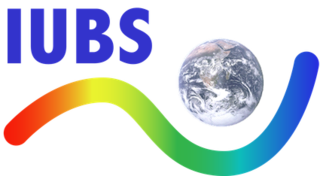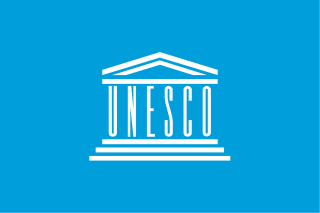Related Research Articles

The United Nations Information and Communication Technologies Task Force was a multi-stakeholder initiative associated with the United Nations which is "intended to lend a truly global dimension to the multitude of efforts to bridge the global digital divide, foster digital opportunity and thus firmly put ICT at the service of development for all".

The International Union of Biological Sciences (IUBS) is a non-profit organization and non-governmental organization, founded in 1919, that promotes the biological sciences internationally. As a scientific umbrella organization it was a founding member of the International Council for Science (ICSU).

Information and communications technology (ICT) is an extensional term for information technology (IT) that stresses the role of unified communications and the integration of telecommunications and computers, as well as necessary enterprise software, middleware, storage and audiovisual, that enable users to access, store, transmit, understand and manipulate information.
The New World Information and Communication Order is a term coined in a debate over media representations of the developing world in UNESCO in the late 1970s early 1980s. The NWICO movement was part of a broader effort to formally tackle global economic inequality that was viewed as a legacy of imperialism upon the global south.

A telecentre is a public place where people can access computers, the Internet, and other digital technologies that enable them to gather information, create, learn, and communicate with others while they develop essential digital skills. Telecentres exist in almost every country, although they sometimes go by a different names including public internet access center (PIAP), village knowledge center, infocenter, Telecottage, Electronic Village Hall, community technology center (CTC), community multimedia center (CMC), multipurpose community telecentre (MCT), Common/Citizen Service Centre (CSC) and school-based telecentre. While each telecentre is different, their common focus is on the use of digital technologies to support community, economic, educational, and social development—reducing isolation, bridging the digital divide, promoting health issues, creating economic opportunities, leveraging information communications technology for development (ICT4D), and empowering youth.
The German Commission for UNESCO is one of 195 National Commissions for UNESCO worldwide, a unique structure in the UN system, foreseen by UNESCO's constitution of 1946. The German Commission was founded on May 12, 1950, one year before West Germany was officially admitted to UNESCO. It has a liaison function for German Multilateral Foreign Cultural Policy; thus, its regular budget is financed by the Foreign Office. It is a chartered non-profit voluntary association with up to 114 members: Its members represent the German Federal government and the governments of the Laender, representatives of important German institutions working within UNESCO's fields of competence as well as individual experts.

The World Heritage Convention, formally the Convention Concerning the Protection of the World Cultural and Natural Heritage, is an international treaty signed on 23 November 1972, which created the World Heritage Sites, with the primary goals of nature conservation and the preservation and security of cultural properties. The convention, a signed document of international agreement, guides the work of the World Heritage Committee. It was developed over a seven-year period (1965–1972).
Konrad Osterwalder is a Swiss mathematician and physicist, former Undersecretary-General of the United Nations, former Rector of the United Nations University (UNU), and Rector Emeritus of the Swiss Federal Institute of Technology Zurich. He is known for the Osterwalder–Schrader theorem.
Environmental adult education is recognized as a "hybrid outgrowth of the environmental movement and adult education, combining an ecological orientation with a learning paradigm to provide a vigorous educational approach to environmental concerns."

The United Nations Educational, Scientific and Cultural Organization (UNESCO) is a specialized agency of the United Nations (UN) with the aim of promoting world peace and security through international cooperation in education, arts, sciences and culture. It has 194 member states and 12 associate members, as well as partners in the non-governmental, intergovernmental and private sector. Headquartered in Paris, France, UNESCO has 53 regional field offices and 199 national commissions.

Maria Rita Saulle was a professor of law and a judge in the Italian Constitutional Court from November 2005 until her death on 7 July 2011.
The International Council for Film, Television and Audiovisual Communication (ICFT) is the UNESCO advisory body on all matters concerned with film, television and new media. Located at UNESCO HQ's in Paris, France, was founded in UNESCO's 10th session of General Conference in 1956.

The World Federation of Engineering Organizations is an international, non-governmental organization representing the engineering profession worldwide.

The International Year of Light and Light-based Technologies 2015 or International Year of Light 2015 was a United Nations observance that aimed to raise awareness of the achievements of light science and its applications, and its importance to humankind. IYL 2015 opening ceremonies was held on 19–20 January 2015 in Paris.

Quinn Sutton is an American business professional. He is the Executive Director of the Digital Alliance Foundation and is known for his work in the private technology education sector and his work on a variety of UN-related and humanitarian projects. In 2007, he co-founded the Digital Alliance Foundation which provides capacity-building Information and Communications Technologies (ICT) skills to marginalized populations and serves as a High-Level Advisor for the Global Alliance for Information and Communication Technologies and Development (UNGAID).
Concept of smart villages is a global modern approach for off-grid communities. Vision behind this concept is to assist the policy makers, donors and socio-economic planner for rural electrification worldwide.
The Declaration and Programme of Action on a Culture of Peace was adopted by the United Nations General Assembly on September 13, 1999. This occurred after ten months of negotiations in the context of preparations for the International Year for the Culture of Peace.

The Observatory on Digital Communication (OCCAM) was established in 1996 by UNESCO in Milan, with the Agreements signed by the Director General, Federico Mayor and Marco Formentini in June 1996. The acronym stands for Observatory for Cultural Communication and Audiovisual in the Mediterranean.
The UNESCO King Hamad Bin Isa Al-Khalifa Prize for the Use of Information and Communication Technologies (ICT) in Education is a UNESCO prize which rewards projects and programmes of individuals, institutions, other entities or non-governmental organizations for the creative use of information and communication technologies to enhance learning, teaching and overall education performance.
References
- ↑ Marketpress: Pierpaolo Saporito, Presidente di OCCAM, nominato High Level Advisor dell'alleanza globale delle Nazioni Unite per le ICT e lo sviluppo . Tale nomina, confermata con lettera del Vice Segretario Generale della Nazioni Unite, Jose Antonio Ocampo, rappresenta un importante riconoscimento dell'Onu per il lavoro svolto da Occam e dal Programma Infopoverty nella lotta alla povertà attraverso le nuove tecnologie della comunicazione e dell'informazione
- ↑ Quotidiano: Pierpaolo Saporito, presidente di OCCAM, fondatore insieme al Parlamento Europeo e le Nazioni Unite di Infopoverty
- ↑ Wikipedia: Infopoverty World Conference held at the United Nations
- ↑ Archived 25 January 2012 at the Wayback Machine : The Infopoverty Institute coordinates with the Observatory for Cultural and Audiovisual Communication (OCCAM) and collaborates with the international community in applying these services especially to impoverished communities around the world.
- ↑ Emmeplus: The Infopoverty Programme was started by the first Infopoverty World Conference Conference, organized by OCCAM in 2001 with the European Parliament, UNESCO Mediterranean Programme, UNIC and other scientific and universityThe Infopoverty Programme was started by the first Infopoverty World Conference Conference, organized by OCCAM in 2001 with the European Parliament, UNESCO Mediterranean Programme, UNIC and other scientific and university institutions
- ↑ :Article on the 13th Infopoverty World Conference in United Nations Non-Governmental Liaison Service e-bulletin
- ↑ [ permanent dead link ]:The past editions of the Infopoverty World Conference enjoyed the participation of more than 100 international organizations, 10000 participants from Governments
- ↑ ESA: Whole areas were left without either electricity or telephone. Two villages, however, Saint Ramon and San Pedro were supplied with solar energy and with satellite terminals allowing broadband connection to the Internet
- ↑ Infopoverty Programme – Mission Archived 26 March 2012 at the Wayback Machine
- ↑ Crystalweb Archived 2 June 2013 at the Wayback Machine : Infopoverty Programme al summit mondiale sulla società dell'informazione
- ↑ Il sole 24 ore: Connettere il mondo per dare un aiuto ai poveri e agli emarginati
- ↑ : Madagascar's Millennium Village goes it alone.
- ↑ Regione Lombardia [ permanent dead link ]:..."Infopoverty World Conference 2011". In collegamento diretto anche..., il Lesotho e il Perù, dove sono in corso progetti realizzati nell'ambito dell'Infopoverty Programme